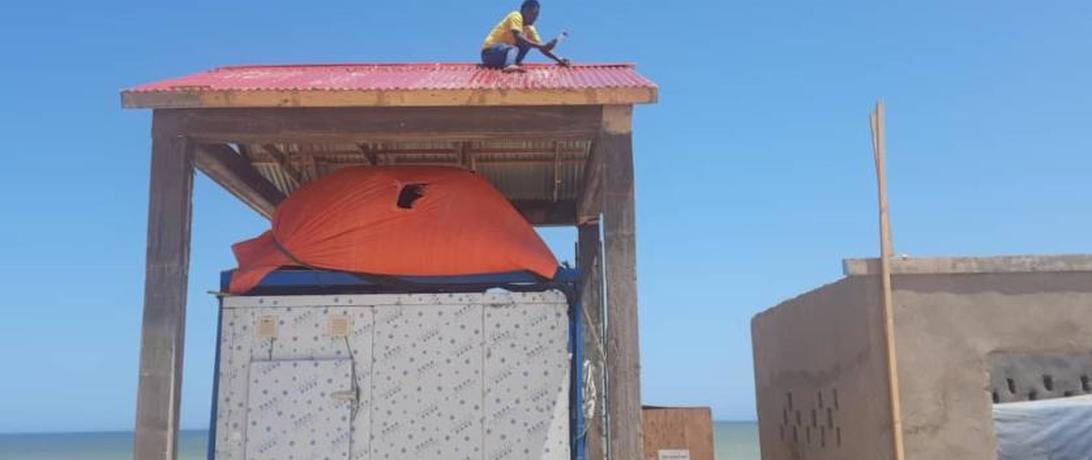The 1,430 fishers of Bander Beyla, Puntland, Somalia now have access to flake ice thanks to a partnership between OEF’s Secure Fisheries program and the Global Food Cold Chain Council (GFCCC) who funded and recently installed a three-ton ice maker in the coastal town. The Somali region’s productive marine fishing grounds provide opportunities for job creation, economic growth, and food security. Unfortunately, the industry’s growth is limited by the lack of reliable cold chain infrastructure. Inefficient fishing and processing methods combined with limited access to ice and cold storage mean fish often spoil before they reach the market. Now with ice on board, Bander Beyla fishers will be able to ensure the freshness of their catch from the moment it leaves the water, reducing waste and opening new market opportunities.
Installation and testing of the ice maker machine are completed. The grand opening will take place in Bandar Beyla on October 26, 2022 to announce and celebrate this new critical piece of infrastructure and to dedicate the machine to the late Eric Prieur of Global Carrier, a champion of cold chain sustainability. The Ice maker will be managed by the leadership of the Fisheries Cooperative Management Association (CMA) in Bandar Beyla, where two technicians have been trained to maintain and repair the machine. A trained enumerator will collect data regarding the performance of ice maker, such as ice production, energy consumption, and water demand, allowing the community and GFCCC to monitor its performance and economic benefits. If the number of fishers in Bander Beyla remains steady, the ice machine has the capacity to provide enough ice to the community for the next decade, increasing profits from seafood products and reducing fish spoilage by an expected 20%.
